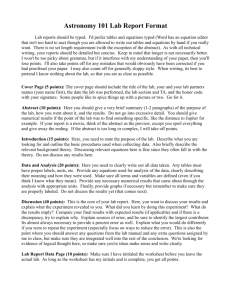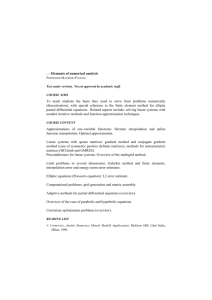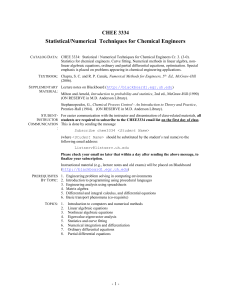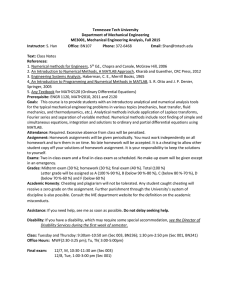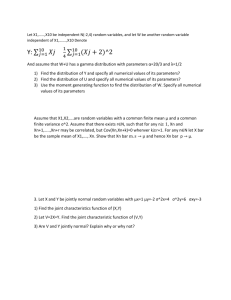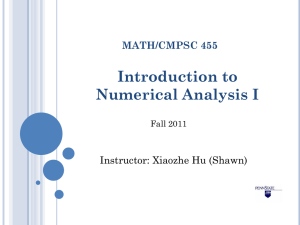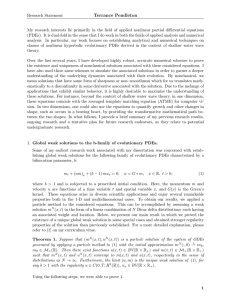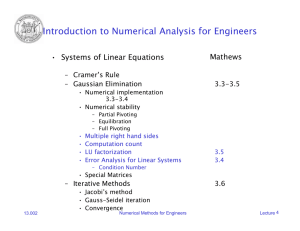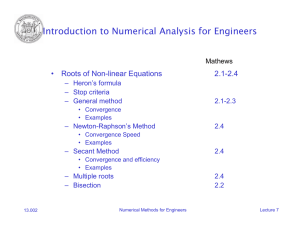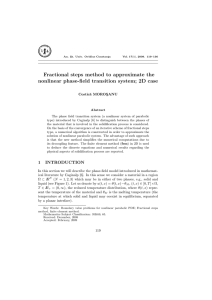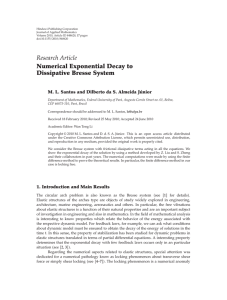ChE 589, Advanced Numerical Methods for Chemical Engineers
advertisement
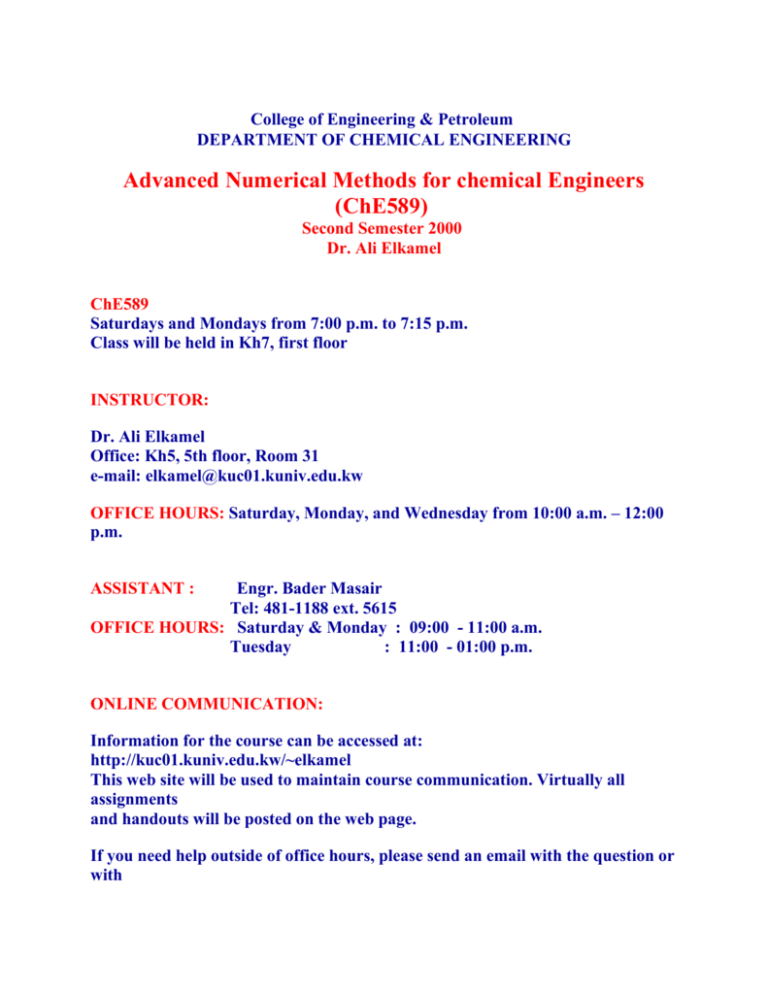
College of Engineering & Petroleum DEPARTMENT OF CHEMICAL ENGINEERING Advanced Numerical Methods for chemical Engineers (ChE589) Second Semester 2000 Dr. Ali Elkamel ChE589 Saturdays and Mondays from 7:00 p.m. to 7:15 p.m. Class will be held in Kh7, first floor INSTRUCTOR: Dr. Ali Elkamel Office: Kh5, 5th floor, Room 31 e-mail: elkamel@kuc01.kuniv.edu.kw OFFICE HOURS: Saturday, Monday, and Wednesday from 10:00 a.m. – 12:00 p.m. ASSISTANT : Engr. Bader Masair Tel: 481-1188 ext. 5615 OFFICE HOURS: Saturday & Monday : 09:00 - 11:00 a.m. Tuesday : 11:00 - 01:00 p.m. ONLINE COMMUNICATION: Information for the course can be accessed at: http://kuc01.kuniv.edu.kw/~elkamel This web site will be used to maintain course communication. Virtually all assignments and handouts will be posted on the web page. If you need help outside of office hours, please send an email with the question or with a request to schedule an appointment. Your questions along with answers by your instructor will be posted on the course web site for every student to benefit from. TEXT BOOK: "Applied Mathematics and Modeling for chemical Engineers" Richard G. Rice and Duong D. Do John Wiley & Sons, Inc. 1995 USEFUL REFERENCES: 1. "Numerical Methods and Modeling for Chemical Engineers", 1984, Mark E. Davis, John Wiley & Sons, Inc. 2. "Applied Numerical Methods with Personal Computers", 1987, Alkis Constantinides, McGraw-Hill Book Company. 3. "Computational Methods for Process Simulation', 1997, W.F. Ramirez, Butterworth Heinemann. 4. "Applied Numerical Methods", 1969, B. Carnahan, H. Luther, and J. Wilkes, John Wiley & Sons, Inc. 5. "An Introduction to Numerical Methods For Chemical Engineers", 1994, James B. Riggs, Texas Tech University Press. 6. "Foundations of Computer-Aided chemical Process design", 1980, R. Mah and W. Seider, Editors, Engineering Foundation. COURSE OBJECTIVES: To introduce the students to numerical methods that can be used to solve mathematical problems arising in chemical engineering applications that cannot be solved by exact methods. COURSE REQUIREMENTS: Attendance at all lectures Exam 1 : Topics 1-3 Exam 2 : Topics 4-6 Final Exam: Comprehensive HOMEWORK ASSIGNMENTS: Homework assignments will be posted on the course web page in due time during the semester. Make sure you visit the page at least twice per week for announcements related to the course. Late homework will not be accepted. GRADING: Homework: 20% Exam 1 : 20% Exam 2 : 20% Final Exam: 40% Letter grades are assigned on the basis of the final class average. I do not use a predetermined scale. COURSE OUTLINE: 1. Introduction to modeling and simulation, Approximations and errors 2. Systems of linear algebraic equations Elementary properties of matrices and determinants Direct elimination methods LU decomposition Tridiagonal systems of equations Iterative methods Accuracy and convergence 3. Nonlinear equations, numerical differentiation, and integration Single nonlinear equation Systems of nonlinear equations Difference formulas Numerical integration and Gaussian quadrature 4. Initial-value problems for ordinary differential equations Explicit methods Stability Runge-Kutta methods Implicit methods Multistep methods Stiffness Systems of differential equations Mathematical software 5. Boundary-value problems Initial value methods - shooting methods - multiple shooting - superposition Finite difference methods Mathematical software 6. Finite element methods for ODE’s Piecewise polynomial functions The Galerkin method Collocation 7. Partial differential equations (PDE’s) Classification of PDE’s Finite differences Finite elements
